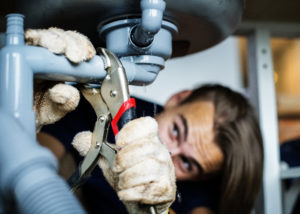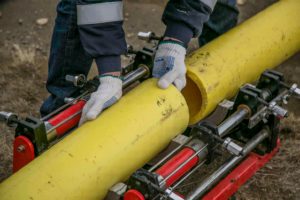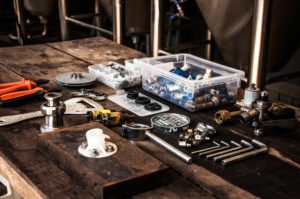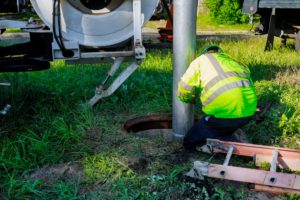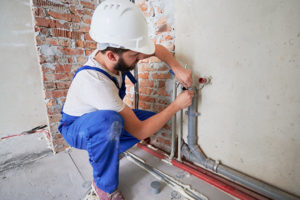 When it comes to managing a commercial property, understanding when you need to call in emergency plumbing services can be the difference between a minor issue and a catastrophic failure that could result in significant damage and financial loss. Plumbing emergencies can strike at any time, often without warning, leaving businesses vulnerable to water damage, operational disruptions, and health hazards. Recognizing the early signs of plumbing distress and acting swiftly to engage professional help is crucial.
When it comes to managing a commercial property, understanding when you need to call in emergency plumbing services can be the difference between a minor issue and a catastrophic failure that could result in significant damage and financial loss. Plumbing emergencies can strike at any time, often without warning, leaving businesses vulnerable to water damage, operational disruptions, and health hazards. Recognizing the early signs of plumbing distress and acting swiftly to engage professional help is crucial.
Overview of Emergency Plumbing Services
Emergency plumbing services are specialized interventions designed to address urgent plumbing issues that pose immediate risks to property, health, or safety. Unlike standard plumbing maintenance, emergency services are characterized by rapid response times, with professionals like Action Plumbing available 24/7 to tackle critical problems. These services encompass a broad range of solutions, from fixing burst pipes and severe leaks to resolving backflow issues and unblocking major clogs. The goal is to promptly mitigate damage and restore the plumbing system to normal function, ensuring that businesses can continue operations with minimal disruption.
Sign #1: Uncontrollable Water Leaks
One of the most apparent signs that you require emergency plumbing services is the presence of uncontrollable water leaks. These leaks can spring from numerous sources, including broken pipes, faulty plumbing fixtures, or compromised water heaters. The immediate consequence of such leaks is water damage to floors, walls, and equipment, which can escalate into mold growth and structural damage if not addressed quickly. When you notice water pooling where it shouldn’t be or hear the sound of running water even when all taps are turned off, it’s time to call in the experts. Emergency plumbers can quickly identify the source of the leak and implement a swift, effective solution, preventing further damage to your property.
Sign #2: Severe Drain Clogs
While minor clogs can often be remedied with a plunger or a drain snake, severe drain clogs require professional intervention. Signs of a serious clog include water backing up in sinks, toilets, or floor drains, often accompanied by unpleasant odors. In commercial settings, such clogs can not only disrupt daily operations but also pose health risks, particularly in establishments like restaurants or healthcare facilities. Emergency plumbing services are equipped with advanced tools like motorized drain augers and hydro jetting equipment to effectively clear out stubborn blockages, restoring proper drainage and ensuring that your facilities are safe and operational.
Recognizing these signs and understanding the importance of quick action can save businesses from the hassle and expense of major plumbing disasters. Action Plumbing’s emergency services offer peace of mind, knowing that professional help is just a call away, ready to address your plumbing emergencies with speed and expertise.
Sign #3: Backflow Issues
Backflow is a plumbing emergency that occurs when the normal flow of water is reversed, potentially contaminating the potable water supply with hazardous waste. This can happen due to changes in water pressure, pipe damage, or failure of a backflow prevention device. The signs of backflow issues include water discoloration, foul smell from taps, or unexpected water flow direction. Not only does backflow pose a significant health risk, but it can also lead to regulatory non-compliance for businesses. Emergency plumbing services include testing, repair, or replacement of backflow prevention devices to ensure the safety of your water supply and compliance with health standards. Immediate professional intervention is necessary to mitigate the risks associated with contaminated water and to protect your property from the potential legal and health implications.
Sign #4: No Water Supply
An abrupt loss of water supply to your facility can halt operations, affecting productivity and causing inconvenience. Several factors can contribute to this issue, including major leaks, frozen pipes, or issues with the municipal water supply. However, diagnosing the exact cause can be challenging without professional expertise. Emergency plumbing services are crucial in these scenarios to quickly identify and resolve the issue, whether it involves repairing a broken line or addressing a more complex problem with the water main. Restoring water supply promptly ensures that your business operations can continue smoothly without significant disruption.
Sign #5: Burst Pipes
Burst pipes are a plumbing emergency that requires immediate attention, especially during cold weather when the risk is highest. Signs of a burst pipe include visible water streaming from the pipe, unusual sounds within the plumbing system, or unexplained wet areas on walls, ceilings, or floors. The damage caused by burst pipes can be extensive, leading to water wastage, property damage, and potential mold growth. Emergency plumbing services specialize in quickly locating and repairing burst pipes, taking measures to prevent future occurrences, and minimizing water damage to your property.
Preventative Measures
While emergency plumbing services are indispensable in addressing urgent issues, taking preventative measures can significantly reduce the risk of plumbing emergencies. Regular maintenance, including professional inspections and cleaning of drains and pipes, can help identify potential problems before they escalate. Installing leak detection systems and backflow preventers, insulating pipes against freezing, and ensuring proper disposal of waste to prevent clogs are also effective strategies. Establishing a relationship with a trusted plumbing service like Action Plumbing for routine maintenance can keep your plumbing system in optimal condition, potentially saving your business from costly emergency repairs in the long run.
Choosing the Right Emergency Plumbing Service
When faced with a plumbing emergency, choosing the right service provider is critical to resolving the issue efficiently and minimizing damage. However, during a crisis, making a quick yet informed decision can be challenging. Here are key factors to consider when selecting an emergency plumbing service:
- Availability: Look for a plumbing service that offers 24/7 emergency assistance. Time is of the essence in emergencies, and the ability to get help quickly, day or night, can prevent further damage.
- Experience: Experienced plumbers are better equipped to handle the wide range of issues that can arise in commercial settings. Check for a service provider with a solid track record and expertise specific to your needs.
- Licensing and Insurance: Ensure the plumbing service is licensed to operate in your area and carries insurance. This protects your business in case of accidents or damage during the repair process.
- Response Time: Ask about typical response times. A plumbing service with a fast response time can significantly reduce water damage and restoration costs.
- Reviews and References: Look at reviews and ask for references to gauge the reliability and quality of the service provider’s work.
Action Plumbing stands out as a reputable choice for emergency plumbing services, meeting all these criteria with their experienced professionals, round-the-clock availability, and commitment to quality service.
Conclusion
Recognizing the signs that indicate the need for emergency plumbing services is crucial for any business owner or property manager. Uncontrollable water leaks, severe drain clogs, backflow issues, no water supply, and burst pipes are clear indicators that professional help is urgently needed. Prompt action not only resolves the immediate problem but also prevents long-term damage and costly repairs.
Moreover, establishing preventative measures and routine maintenance with a trusted plumbing service can significantly reduce the likelihood of emergencies. Regular inspections, proper insulation of pipes, and the installation of leak detection systems are proactive steps towards safeguarding your commercial property against plumbing disasters.
In emergencies, choosing the right plumbing service makes a significant difference. Factors such as availability, experience, licensing, response time, and positive reviews guide you in selecting a provider like Action Plumbing, ensuring that when a crisis strikes, your plumbing emergency is resolved swiftly and effectively. Remember, the goal is to not just address the immediate issue but to also prevent future occurrences, maintaining the safety, functionality, and comfort of your commercial space.
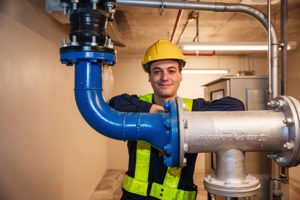 The backbone of any commercial establishment’s operational efficiency, safety, and compliance lies significantly within its plumbing infrastructure.
The backbone of any commercial establishment’s operational efficiency, safety, and compliance lies significantly within its plumbing infrastructure. 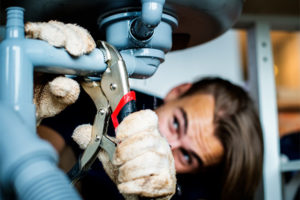 Recognizing what constitutes a plumbing emergency is the first step in effective crisis management. Some common issues that businesses often face include:
Recognizing what constitutes a plumbing emergency is the first step in effective crisis management. Some common issues that businesses often face include: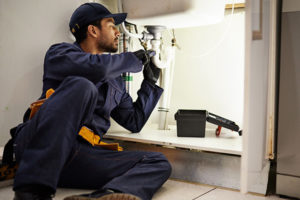 Professional plumbers play a critical role in effectively resolving plumbing emergencies. Here’s what they bring to the table:
Professional plumbers play a critical role in effectively resolving plumbing emergencies. Here’s what they bring to the table: